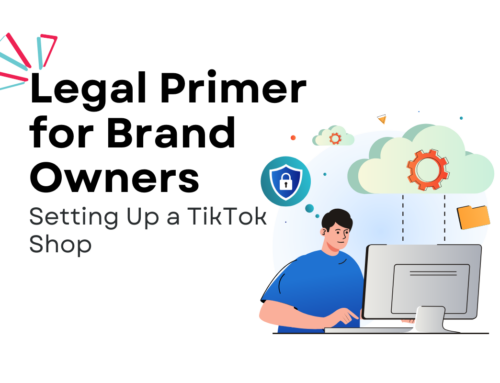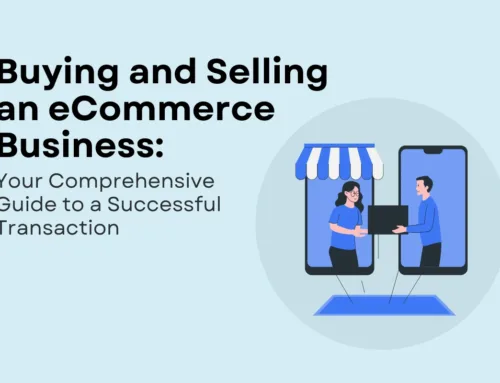“But I’m right!” my client exclaims, their voice rising with frustration. “They breached the contract! I should sue!”
Ah, the classic client conundrum. They’re convinced they have a slam-dunk case, ready to march into court and demand justice. That’s when I hit them with the question: “Do you want the law school exam answer, or the seasoned eCommerce advocate answer?”
Blank stares usually follow.
“The law school exam answer,” I explain, “is a beautiful analysis of the facts, the law, and the potential arguments. It’s intellectually stimulating, maybe even a bit thrilling. But it’s also theoretical.”
I pause for effect. “The seasoned eCommerce advocate answer? That’s about reality. It’s about looking at your $10,000 problem and asking, ‘Do you really want to spend over $100,000 to fight this in court? Especially when your contract doesn’t even allow you to recover your legal fees?'”
Suddenly, the excitement fades. The reality of litigation – the time, the cost, the uncertainty – sets in. And that’s when the real conversation begins.
See, the legal system isn’t built for most eCommerce businesses. Courts are expensive, slow, and often fail to deliver the justice you deserve. For many online sellers, litigation is simply not a viable option, even when they’ve been wronged. That’s why your legal strategy should prioritize leverage and proactive solutions, not just reactive responses.
Contracts: Your First Line of Defense for eCommerce Businesses
A well-drafted contract is your first line of defense, but it’s only as strong as your ability to enforce it. A good eCommerce lawyer doesn’t just draft contracts; they help you structure deals to minimize risk and maximize your leverage. Here’s how to approach some common eCommerce legal needs:
1. Third-Party Logistics (3PL) Contracts: Protecting Your Inventory
Imagine your 3PL loses $15,000 of your inventory. Are you going to sue? Probably not. Litigation is costly and time-consuming. Instead, build leverage into your 3PL contract with these strategies:
- Right of Setoff: Negotiate the right to deduct the value of lost or damaged inventory from future payments to the 3PL. This gives you immediate recourse without costly litigation.
- Performance-Based Pricing: Tie the 3PL’s fees to their performance. This incentivizes them to handle your inventory with care and meet deadlines.
- Tiered Service Levels: Offer different service levels with varying prices, giving you flexibility and leverage if the 3PL’s performance isn’t up to par.
- Stronger Termination Clauses: Include clear terms for ending the contract if the 3PL fails to meet specific performance metrics.
- Insurance Requirements: Ensure the 3PL has adequate insurance to cover your inventory in case of loss or damage.
- Regular Reporting and Audits: Require regular reports and allow for periodic audits to maintain transparency and oversight.
- Diversification: Work with multiple 3PLs to reduce your reliance on any single provider and strengthen your negotiating position.
2. PPC Consultant Agreements: Aligning Incentives for eCommerce Success
You hire a PPC agency to manage your Amazon or Shopify ads, and they waste your budget. Suing them might not be worth the cost and effort. Instead, build leverage into your agreement:
- Performance-Based Compensation: Tie the agency’s fees to their performance, aligning their incentives with your success.
- Clear Exit Clauses: Include clear terms for terminating the contract if the agency fails to meet performance goals.
3. Investor Agreements: Safeguarding Your Funding for eCommerce Growth
An investor backs out after committing funds. Suing them is often unrealistic for a small business. Here’s how to protect yourself:
- Escrowed Funds: Require the investor to deposit funds into an escrow account, ensuring the money is available when needed.
- Personal Guarantees: Consider asking for a personal guarantee from the investor, making them personally liable if they don’t fulfill their obligations.
- Staged Investments: Structure the investment in stages with clear milestones to prevent investors from backing out after receiving initial funds.
- Stronger Representations and Warranties: Include detailed representations and warranties about the investor’s financial capacity and commitment.
- Clear Default Provisions: Define specific events that constitute default by the investor and outline the consequences.
- Co-Sale Rights: Negotiate co-sale rights, allowing you to sell your shares if the investor exits.
- Board Representation: Negotiate for a seat on the company’s board to have a voice in key decisions.
- Clear Exit Strategies: Outline clear exit strategies for both you and the investor.
4. Selling Your eCommerce Business: Getting Paid What You’re Owed
Selling your eCommerce business is a major milestone. But don’t let the excitement cloud your judgment. When negotiating the sale, be wary of heavily relying on earn-outs or seller notes. While they might seem attractive, they can become a source of conflict and financial loss down the road.
Why Earn-outs and Seller Notes Can Be Problematic:
- Earn-outs: These are payments tied to the future performance of the business. The problem? Disputes often arise over how performance is measured and whether the buyer is taking actions to maximize the earn-out. Proving your case can be difficult and expensive.
- Seller Notes: These are essentially loans to the buyer, with the business’s assets as collateral. If the buyer defaults on the note, you might have to spend significant time and money to foreclose on the business, potentially ending up with a depreciated asset and legal bills.
Prioritize Upfront Cash: Your Safest Bet
Instead of relying on promises of future payments, prioritize getting as much cash upfront as possible. This reduces your risk and gives you immediate liquidity.
Why Upfront Cash is King:
- Certainty: Cash in hand is guaranteed. You don’t have to worry about the buyer’s future performance or financial stability.
- Reduced Risk: You avoid the risk of disputes, defaults, and costly litigation associated with earn-outs and seller notes.
- Financial Freedom: You have the freedom to invest the cash, pursue new ventures, or simply enjoy your hard-earned reward.
Remember: When selling your business, your goal is to get paid what you’re owed with minimal risk and hassle. Prioritizing upfront cash helps you achieve that goal.
The Cost of a Lawyer Who Doesn’t Understand eCommerce Business Reality
Not all lawyers are created equal. Some focus solely on legal technicalities and may advise you to take actions that seem legally sound but could be disastrous for your business.
Here’s a common scenario: you receive an infringement notice. Your lawyer, convinced you’re in the right, responds aggressively. This could escalate the situation unnecessarily, leading to a costly lawsuit that could have been avoided with a more strategic approach. Or, your Amazon account gets suspended due to an IP claim that your lawyer escalated without considering the practical consequences.
Lawyers Should Be eCommerce Realists, Not Just Drafting Technicians
The legal industry often pretends that the system is fair and that contracts will always protect you. But for eCommerce businesses, the reality is different. A contract is only as strong as your ability to enforce it. That’s why your lawyer should help you structure deals in a way that minimizes your exposure—not just with strong legal language, but with practical, strategic leverage.
Find an eCommerce Lawyer Who’s Also a Strategist
For eCommerce businesses, justice isn’t just about what’s fair; it’s about what you can enforce. You need a lawyer who understands this reality and can help you navigate the legal landscape proactively. They should be your strategic advisor, not just a drafting technician. They should understand the business implications of legal decisions and help you find solutions that protect your bottom line.
Should you need a legal strategist for your eCommerce business, feel free to contact me at [email protected].
-Paul Rafelson




